14 players born in 2000 to look out for in FIBA Asia Cup 2021
The next FIBA Asia Cup is still three years away but since we’ve been hyped up by the recent FIBA U18 Asian Championship, let’s take a look at some prospects born in 2000 who could see some action by 2021!
BEIRUT (FIBA Asia Cup 2021) - The next FIBA Asia Cup is still three years away but since we’ve been hyped up by the recent FIBA U18 Asian Championship, let’s take a stroll into the future at some prospects born in 2000 who could start to see some action when the regional tournament tips off!
Australia
Kody Stattman / Josh Green
The defending Asia Cup champions are in no need of new talents with an already elite roster of players in their prime. It still doesn’t hurt to have some top notch youngsters that should rise up to the senior ranks soon.
Kody Stattmann has been tearing it up in the youth ranks as a member of the Emus. In the recent FIBA U18 Asia Championship, Stattmann scored 12.8 points per game as a primary wing scorer on the team. Stattmann is committed the the University of Virginia in NCAA D1 where he will further improve his game. Stattmann is already a great shooter so it’s not too farfetched to imagine him improving up to a level where he’ll be called up to the Boomers by 2021.
Another Australian youngster that has been generating buzz is Josh Green, even though he didn’t even play on the FIBA U18 Asian Championship team. Green was instead named to the 24-man pool for the FIBA WC Asian Qualifiers in this upcoming window. The 6’6” guard is currently studying at IMG Academy in the United States and has received NCAA D1 offers from top schools like Villanova and UNC (among others) as a 5-star recruit. Touted as an athletic slasher and a shooter, Green is already projected to be a first round pick in the 2020 NBA Draft. If he progresses as projected, it would seem like a no-brainer for Australia to call him up to play at the FIBA Asia Cup in 2021.
Iran
Amirhossein Rezaeifar
The West Asian powerhouse does not have a shortage of athletic big men, but they should really take a hard look at Amirhossein Rezaeifar when 2021 comes by to bring some youth to their front court. Hamed Ehadadi will be 36, Oshin Sahakian will be 35, and Arsalan Kazemi will be 31 by the next FIBA Asia Cup. Rezaeifar displayed great athleticism and length at the FIBA U18 Asian Championship and over the next 3 years, he should improve even more to warrant a spot on the Asia Cup roster. Rezaeifar averaged 11.8 points, 11.3 rebounds, and 2.3 blocks in the U18 tournament and more than that was his leadership on the team that pins him as a promising prospect.
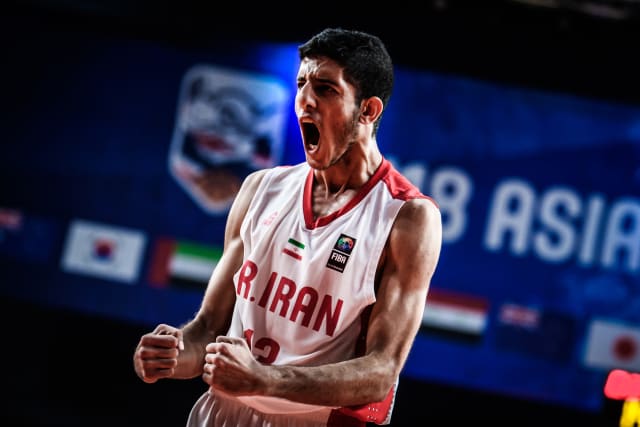
Korea
Hyunjung Lee
As one of the most impressive players in the entire FIBA U18 Asian Championship, Hyunjung Lee looks like a player who will surely make a senior team appearance in the near future. Lee was able to lead Korea in 4 major statistical categories with averages of 26.0 points, 10.3 rebounds, 6.0 assists, and 3.3 steals in the tournament. He might need to fill out his 6’7” frame, but his skill set of being a knockdown shooter and a deft passer makes him a tantalizing prospect. He has spent the past year developing his game in Australia and if he can continue to improve at this rate, Lee’s name should be on everyone’s mind sooner or later.
New Zealand
Flynn Cameron
New Zealand are already pretty set at the guard position with 25-year-old Shea Ili and 23-year-old Tai Webster continuing to impress at the FIBA WC Asian Qualifiers. It would still be hard to just over look a talent like Flynn Cameron who is rising up the charts quickly. Cameron notched the only triple-double of the FIBA U18 Asia Championship and averaged 11.3 points, 6.0 rebounds, and 5.6 assists to lead New Zealand all the way to the title game and a second straight appearance at the FIBA U19 World Cup. Though New Zealand might not desperately need his talents in 2021, it would be too much of a shame to not give the young gun some burn.
China
Haowen Guo / Quanze Wang
China seems to never run out of bright young talents to reload their senior squads and the trend continues here. Guo and Wang were the deadliest one-two punch in the entire FIBA U18 Asian Championship and it was their gaudy outputs that helped lead them to a Bronze medal finish.
Quanze Wang is a unique prospect in the China National Team pipeline in which he developed his skills over the past 4 years in the United States and will continue to do so when he attends the University of Pennsylvania next year. The agile big man was the most efficient player in the tournament boasting a spectacular 20.0 points, 13.0 rebounds, 3.6 assists, and 33.3 % shooting from downtown.
While Wang was terrorizing in the paint, Haowen Guo was doing a little bit of everything from the perimeter for China. Guo averaged 18.7 points, 6.3 rebounds, and 5.4 assists, proving to be one of the most complete players in the entire playing field. He could shoot from long range, he could penetrate aggressively towards the basket, and he could also set up his teammates as well.
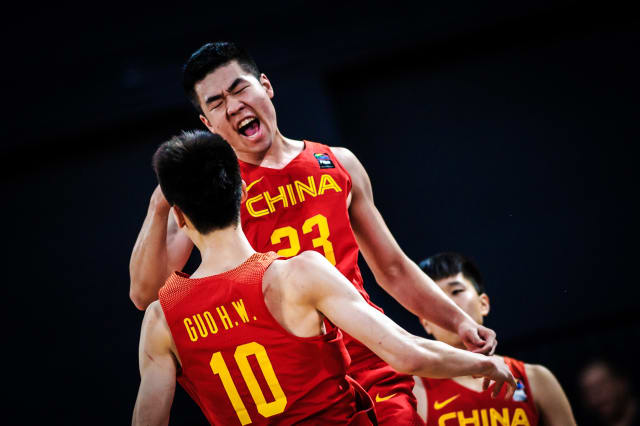
China are already loaded with young stars like Guo Ailun and Zhou Qi and having Haowen and Quanze prepared to be next in line (and hopefully ready for FIBA Asia Cup 2021) must be a great luxury to have.
Philippines
AJ Edu
The FIBA U18 Asian Championship saw the end of the much anticipated debut of AJ Edu on a Philippines 5-on-5 National Team squad and he did not disappoint. His sublime 14.2 point, 11.5 rebound, and 2.8 block averages already have fans anticipating once again for his debut with the senior national team.
With his length, athleticism, and defensive instinct, Edu should be more than ready to provide quality minutes for the Philippines National Team in 2021 for the FIBA Asia Cup. In the meanwhile, Edu will be further honing and improving his skills playing for the University of Toledo in NCAA D1.
Chinese Taipei
Jonah Morrison
The 6’8” burly big man already mentioned that he had been practicing with the senior men’s national team, so it’s definitely not too much to expect that he will get a chance to get a crack at the roster in 2021.
Chinese-Taipei have thrived without much size down low in international competition, so the possibility of adding a big body like Jonah Morrison into the lineup is surely intriguing. Morrison had a knack for offensive rebounds and led the FIBA U18 Asian Championship in the category with 4.8 per game, a skill which should be valuable in the senior level as well. For someone who has only started playing basketball for three years, Morrison has developed rapidly which makes it more fun to imagine which level he will be at in the next three years.
India
Seijin Mathew
India’s senior team are in much need of production from the wing, which makes Mathew’s emergence perfectly-timed leading up to the FIBA Asia Cup in 2021.
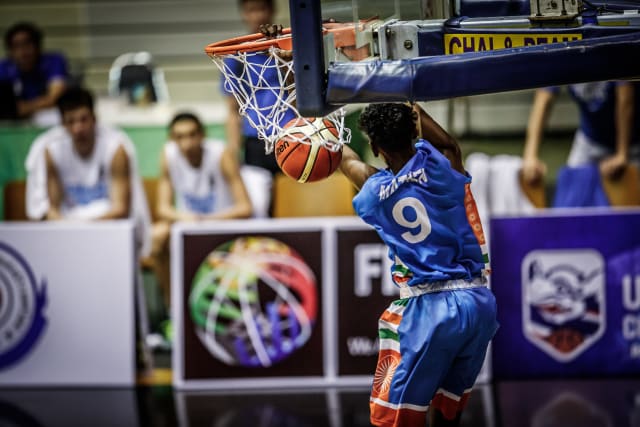
Seijin Mathew spent most of the FIBA U18 Asian Championship in the shadows of Princepal Singh and Rajeev Kumar, but was always oozing with potential with his agility to get to the rim and finish. He finished with a solid but quiet 10.5 points and 5.0 rebounds, but there were many moments that Mathew shined as one of the brighter players on the floor for India.
Kazakhstan
Anuar Shakirov
The diminutive guard has been groomed as a part of Kazakhstan’s future ever since being on the FIBA U18 Asian Championship roster back in 2016. Anuar Shakirov was just as important (and even more) on the 2018 team, including a 21 point, 4 rebound, 3 assist line against Iran. Kazakhstan is in need of a fresh breath of young talent to be infused to their line up and with the way that Shakirov has progressed, he should be a prime prospect for Kazakhstan to look at for the FIBA Asia Cup in 2021.
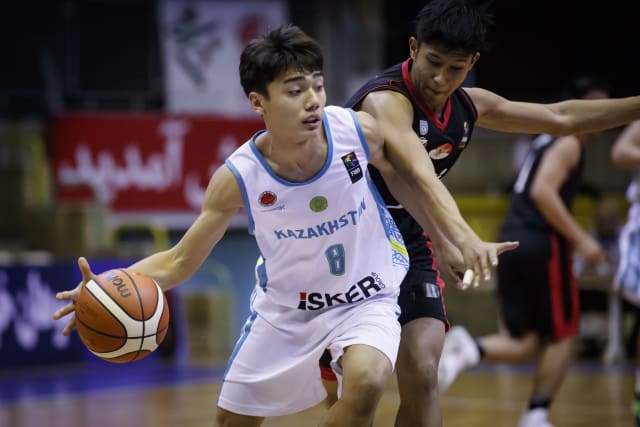
*The following teams have yet to qualify for the FIBA Asia Cup 2021 but are right in the mix to qualify with the Regional Qualifiers coming up. They also have some bright young talents that could be useful should they eventually qualify for the 2021 event*
Thailand
Pongsakorn Jaimmsawad
Thailand didn’t have the most promising performance in the FIBA U18 Asian Championship, but the senior team can at least look forward to the continued development of Pongsakorn Jiamsawad. The forward has already played on the FIBA U16 Asian Championship in 2015 and the FIBA U18 Championship in 2016, so it’s clear that Thailand is expecting a lot from him in the future. In the 2018 FIBA U18 Asian Championship, Jiamsawad was top two in scoring (12.7 PPG), rebounds (3.7 RPG), and assists (2.3 APG).
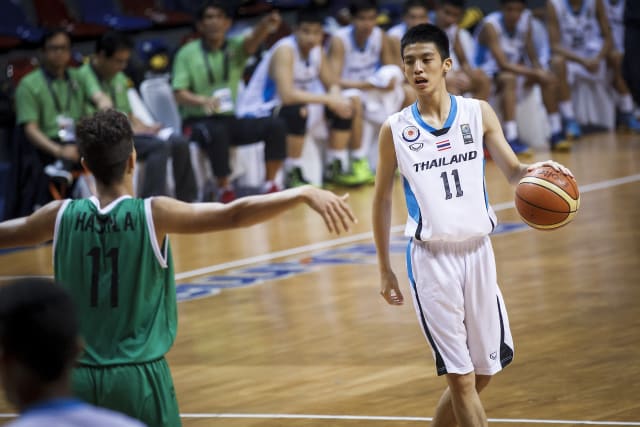
Thailand has lacked a lead guard presence in their senior team and Jiamsawad could provide that production with a couple more years of experience on his belt.
Singapore
Lavin Raj
Singapore has been including Raj in their senior roster since the SEABA Championship in 2017 and while he still showed that he was very raw, he displayed a lot of promise as well.
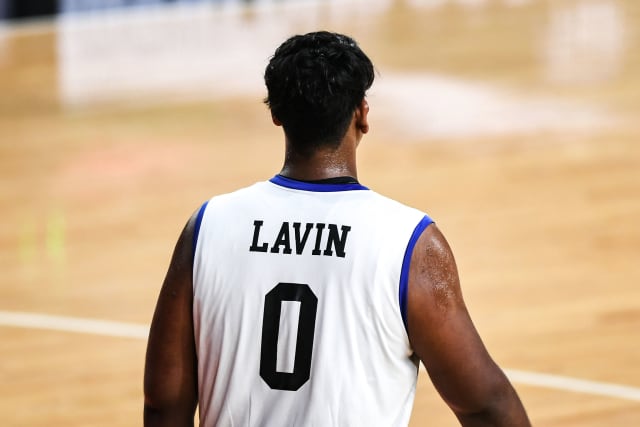
Lavin Raj played very limited and selected minutes recently in the FIBA Asia Cup 2021 SEABA Pre-Qualifiers but still produced 5.6 points and 5.0 rebounds in just 8.8 minutes. The 6’7” project still has a lot to prove, but he’s on track to have a sizable role if Singapore qualifies for the FIBA Asia Cup in 2021.
Indonesia
Yesaya Alessandro Michael
Indonesia had already recently retired one legendary point guard in Mario Wuysang this summer and while Xaverius Prawiro (31) still has quality years down the road, they have to start looking for a young guard to prepare for the floor general role.
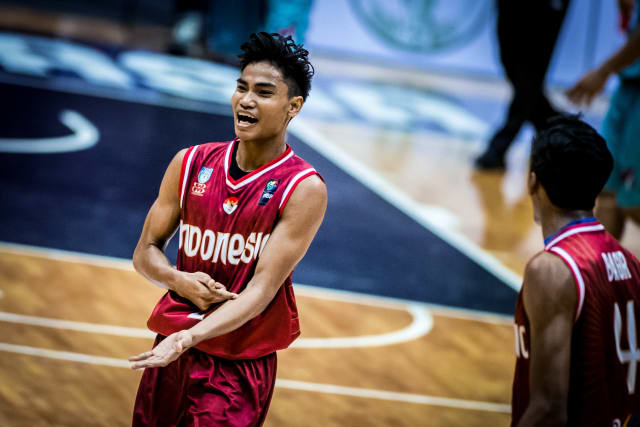
Yesaya Alessandro Michael displayed his guts and skills at the FIBA U18 Asian Championship which should give him at least a good long look at the chance of making the FIBA Asia Cup 2021 roster if Indonesia succeeds in advancing. Michael led the team with 14.5 points, 6.0 rebounds, and 2.3 assists which should be promising enough to pique the interest of the Indonesia coaching staff. With other guards like Andakara Prastawa and Hardianus Lakudu also in line, it’s going to be a long shot for Michael but he’s shown that you should never count him out
FIBA